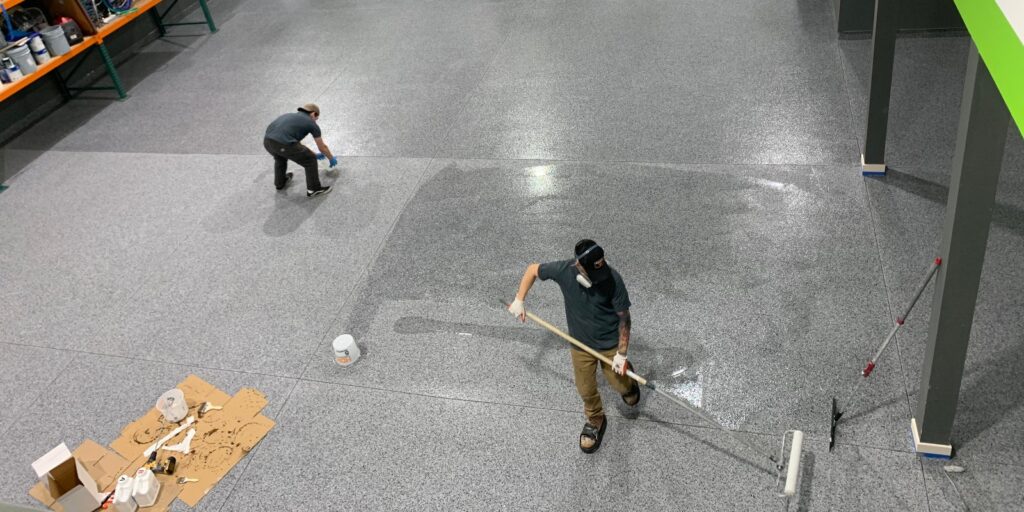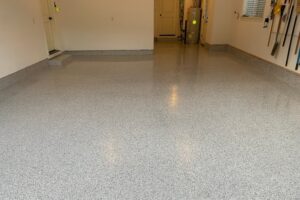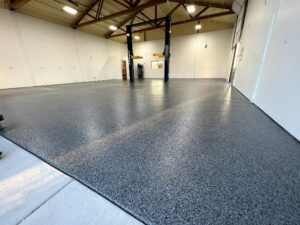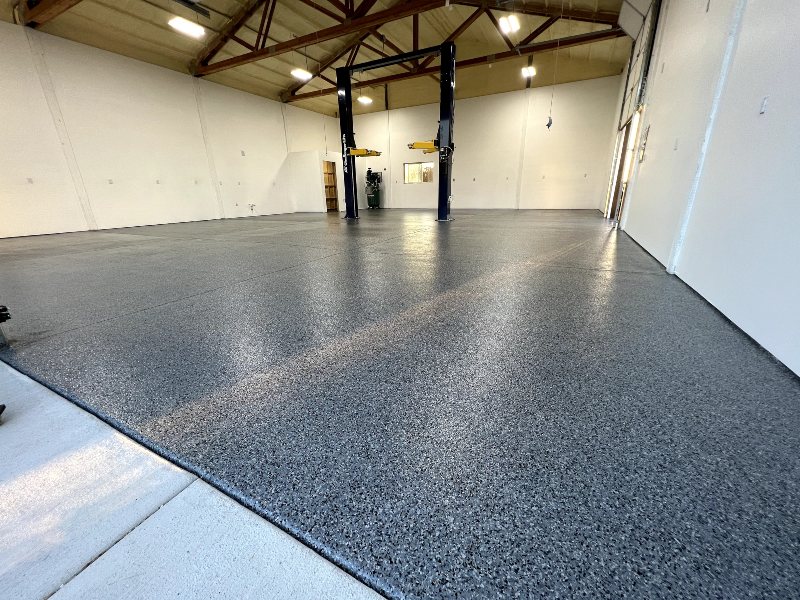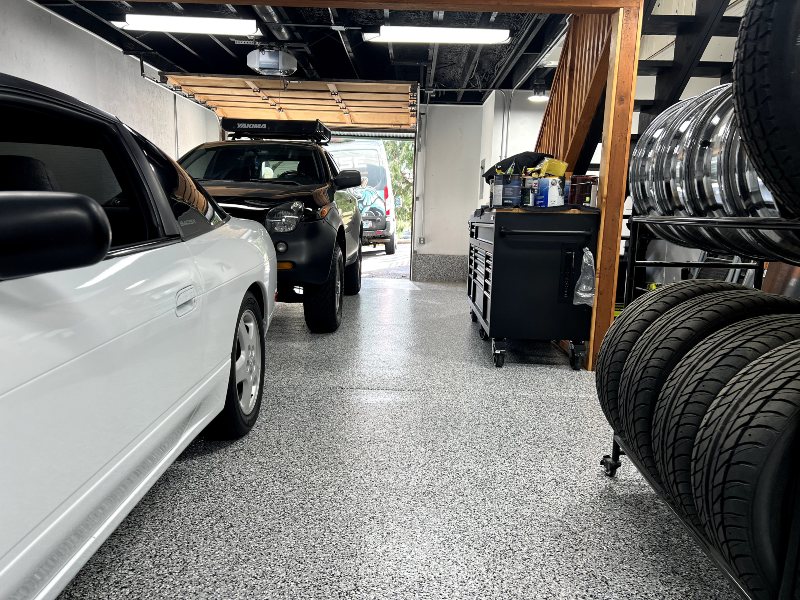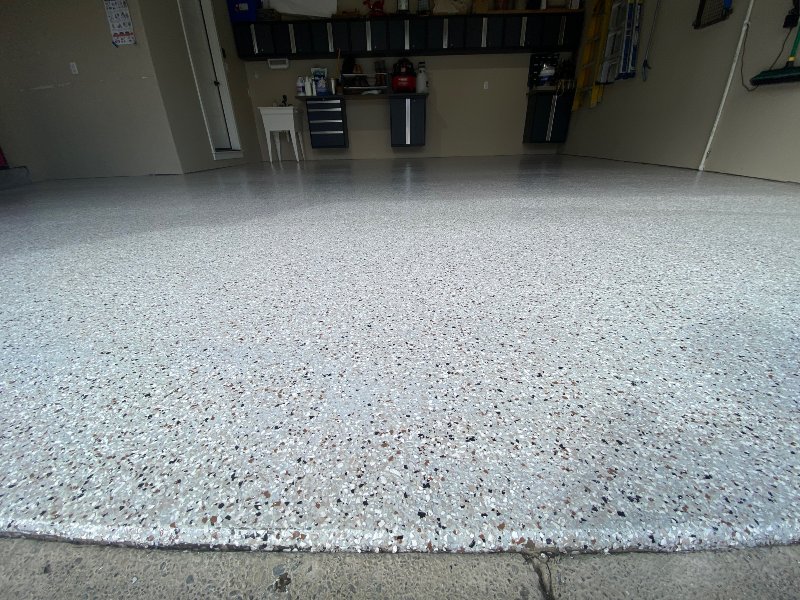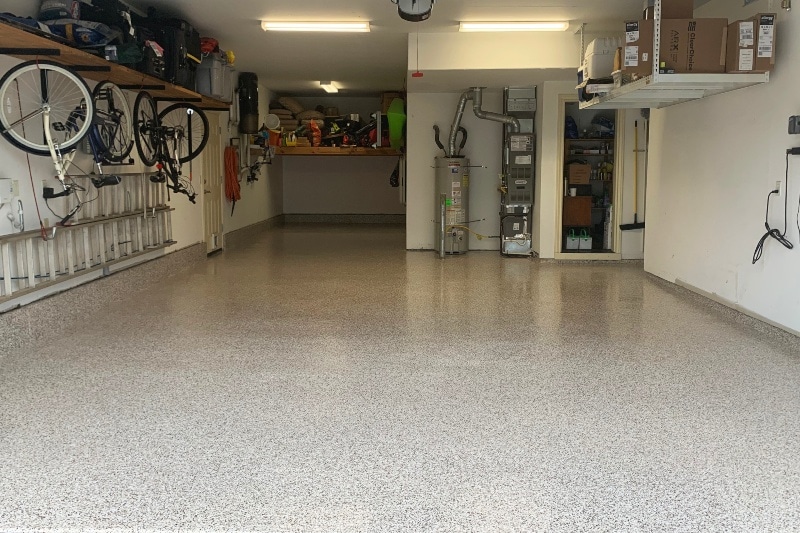Balancing Aesthetics and Budget: How Much Does Epoxy Flooring Really Cost?
When it comes to flooring options, epoxy has become increasingly popular in recent years. Its sleek and shiny appearance makes spaces look modern and high-end, while its durability and resistance to chemicals make it a practical choice for various facilities. However, with any home improvement project, budget is always a consideration. Many people wonder if the aesthetic benefits of epoxy are worth the cost or if there are more affordable alternatives available. In this blog post, we’ll dive into how much epoxy flooring cost so you can make an informed decision on whether this option fits your budget without compromising on style. We’ll also explore other factors that contribute to the overall cost of installing epoxy floors so you have all the information necessary to find that perfect balance between aesthetics and budget.
Epoxy Flooring: A Rising Trend in Residential and Commercial Spaces
Epoxy flooring is a type of surface coating that consists of two main components: resins and hardeners. These two components are mixed together to create a chemical reaction that forms a rigid plastic material. The result is a flooring solution that is strong, resistant, and bonds exceptionally well to most base layers.
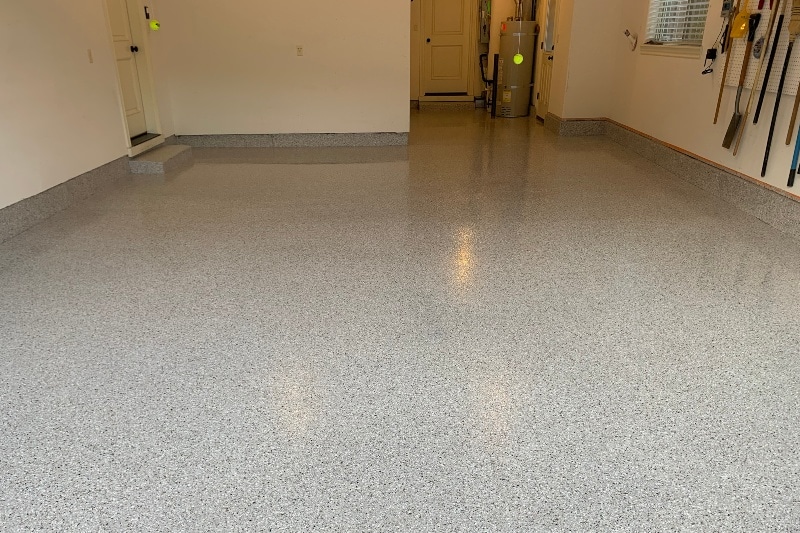
Over the past few years, epoxy flooring has seen a surge in popularity in both residential and commercial settings. Homeowners appreciate its modern, polished aesthetic, which can be tailored to a wide range of design preferences with choices of colors and finishes. Businesses, on the other hand, value epoxy for its durability and ease of maintenance, making it an ideal choice for high-traffic areas like warehouses and factories. Not only does it withstand heavy foot traffic, but it’s also resistant to water, oil, and other chemical spills, which are common in such environments. This combination of aesthetic appeal and practical benefits is what makes epoxy flooring a popular choice among a growing number of people and businesses.
Benefits of Epoxy Flooring
Epoxy flooring offers a myriad of benefits that make it a viable option for both residential and commercial use.
- Durability: Epoxy floors are known for their long-lasting quality. They can withstand heavy traffic and resist wear, making them a practical choice for locations like garages, factories, and hospitals.
- Resistance: These floors are resistant to water, oil, heat, and various other chemicals, enhancing their lifespan and reliability.
- Variety: Epoxy flooring is available in a wide range of colors, textures, and patterns, enabling customization according to individual taste or branding requirements.
- Easy Maintenance: Epoxy floors are easy to clean and require minimal maintenance, which makes them a cost-effective solution in the long run.
- Safety: The glossy finish of epoxy flooring enhances lighting in a space, contributing to a safer environment. Furthermore, options with anti-slip additives increase the safety quotient, particularly in high-traffic areas.
By considering these benefits, it becomes clear that epoxy flooring is a substantial investment, offering value for money by combining aesthetic appeal with functional utility.
Factors Affecting the Cost of Epoxy Flooring Installation
Several factors can influence the cost of your epoxy flooring installation, making it important to consider these aspects when estimating your overall budget.
- Floor Condition: The existing condition of your floor can significantly impact the cost. A floor that is damaged or uneven may need additional preparation or repair before the epoxy can be applied, adding to the overall cost.
- Size of the Space: As with most home improvement projects, the size of the space being worked on will directly impact the cost. Larger spaces will require more material and labor, thus increasing the cost.
- Complexity of the Job: The complexity of the application can also affect the price. If the job includes intricate patterns, multiple colors, or special finishes, this will require more time and skill, adding to the cost.
- Type of Epoxy: There are several types of epoxy, each with its own price range. Some are more affordable but may not be as durable, while others are more expensive but offer better longevity and performance.
- Labor Costs: Depending on the region and the expertise of the installer, labor costs can vary. Experienced professionals may charge more, but their expertise can ensure a high-quality finish and longevity of your floor.
By understanding these factors, you can make an informed decision about whether epoxy flooring is a suitable option, keeping your budget and aesthetic preferences in balance.
Average Cost Breakdown for Different Types of Epoxy Flooring
Let’s delve into the average cost breakdown for different types of epoxy flooring:
- Standard Epoxy: Standard epoxy is generally the most affordable option, often used in residential and commercial garages. The average cost for this type ranges from some dollars per square foot.
- Self-Leveling Epoxy: This type of epoxy is used to provide a smooth and level surface, typically used in commercial buildings, garages, or kitchens.
- Quartz-Filled Epoxy: Quartz-filled epoxy floors combine high-performance epoxy polymer resin with colored quartz grains, resulting in a durable floor that is also aesthetically pleasing.
- Anti-Static Epoxy: This option is crucial in environments that require a static-free space, such as hospitals, electronics equipment factories, or chemical labs. Anti-static epoxy flooring costs slightly more, with prices ranging from less than ten dollars per square foot.
Remember that these costs are rough estimates and actual prices may vary based on additional factors like the cost of labor, floor condition, and complexity of the job. Always consult with a professional for a more precise quote based on your specific circumstances.
Tips for Choosing a Reputable Contractor and Understanding Their Pricing Structure
When it comes to choosing a reputable contractor, there are several key factors to consider.
- Experience: A well-established contractor with years of experience in epoxy flooring installation is likely to deliver a higher quality job compared to a less experienced one.
- References and Reviews: A reputable contractor should provide references from previous clients. Additionally, check online reviews and ratings to get a better idea of their work quality and customer service.
- Licensing and Insurance: Ensure that the contractor is fully licensed and insured to guarantee the safety of your project.
- Detailed Estimates: A professional contractor should provide detailed written estimates that outline the cost of materials, labor, and any additional charges.
Understanding the contractor’s pricing structure is also important. Most contractors will charge for labor and materials, but there may be additional costs for prep work, particularly if the existing floor is damaged or uneven. Some may also include charges for moving furniture or items in the space. Make sure you understand the full extent of the costs before starting the project to avoid unexpected expenses.
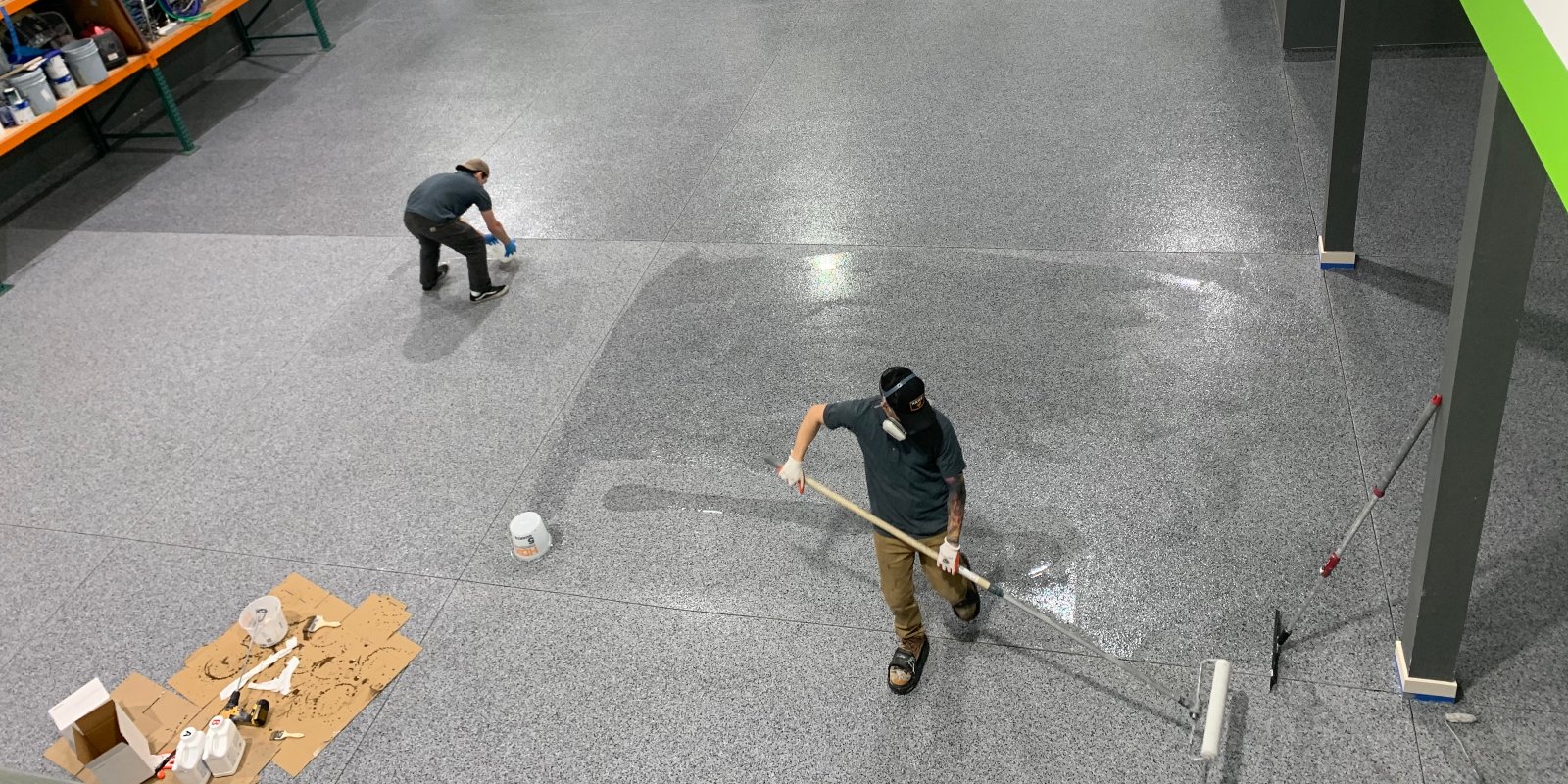
DIY Options for Those on a Tighter Budget – Pros and Cons to Consider
For those on a tighter budget, a Do-It-Yourself (DIY) epoxy flooring installation may seem like an attractive option. However, it’s important to weigh the pros and cons before proceeding.
Pros:
- Cost Savings: The most obvious advantage of a DIY approach is potential cost savings. By eliminating labor costs, the total expense can be significantly reduced. This can be particularly beneficial for smaller spaces.
- Personal Satisfaction: There’s also a sense of accomplishment that comes with completing a DIY project. This can make the end result even more rewarding.
Cons:
- Time Consuming: Epoxy flooring installation is a multi-step process that can be time-consuming. It involves floor preparation, priming, applying the epoxy, and sealing it. Homeowners with little or no experience may find it takes longer than expected.
- Risk of Mistakes: There’s also a higher risk of errors with a DIY approach. These can range from minor aesthetic issues to serious structural problems that affect the durability of the floor. Mistakes can also lead to additional costs if professional repair is needed.
- Lack of Warranty: Most professional installers offer a warranty for their work, providing peace of mind. This is not usually the case with DIY installations.
In conclusion, while a DIY approach can save money, it requires a significant investment of time and effort. There’s also a higher risk of mistakes. It’s important to carefully consider these factors before deciding on a DIY epoxy flooring installation. Ultimately, hiring a professional contractor may provide better long-term value and ensure a high-quality finish. Whichever option you choose, be sure to do thorough research and consult with experts to get the best results for your budget and needs.


